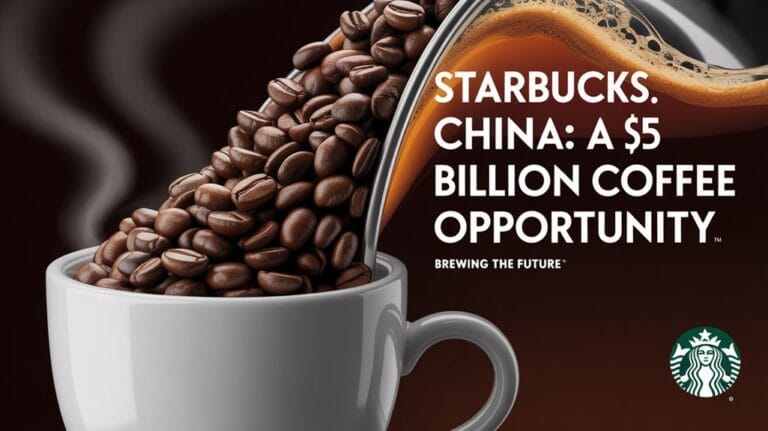As interest in China’s coffee market grows, bidders are eyeing a potential $5 billion goldmine in Starbucks China. With a valuation of about $5 billion, Starbucks’ China operations have attracted attention from several large private equity firms and investors.
Interest in China’s coffee market is surging as bidders target Starbucks’ $5 billion operations, attracting major private equity firms.
These bidders believe there’s significant market potential in Starbucks China, especially as the brand continues to expand its presence across the country. Currently, Starbucks operates around 21,018 stores in China, the company’s third-largest market.
However, it faces fierce competition from local brands like Luckin Coffee, which has around 26,000 stores. As rivals adopt aggressive competitive strategies with lower-priced products and frequent product launches, Starbucks knows it must adapt to maintain its foothold.
Recent reports show that despite previous sluggish growth, Starbucks China has bounced back with a 2% rise in comparable-store sales. The intense competition prompts bidders to contemplate the future growth of Starbucks China carefully.
The coffee chain still holds a sizeable share, contributing approximately 8.3% to Starbucks’ global net sales. Analysts believe that even with market challenges, there’s notable demand for premium coffee in China.
With rising per-capita coffee consumption, investors are optimistic about long-term growth, even if short-term obstacles persist. Starbucks plans to monetize a portion of its business to mitigate these risks.
The potential deal is among the largest separations of a China unit by a global brand, showing the stakes are high. Bidder interest is strong, with well-known firms like Carlyle, EQT, and KKR actively involved.
Most offers made so far are non-binding bids, indicating that bidders are interested but still evaluating their options.





